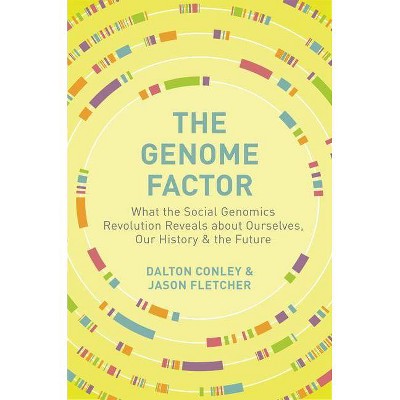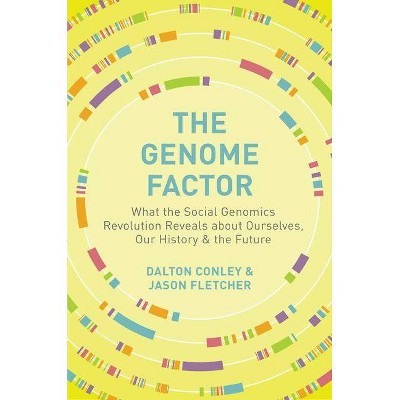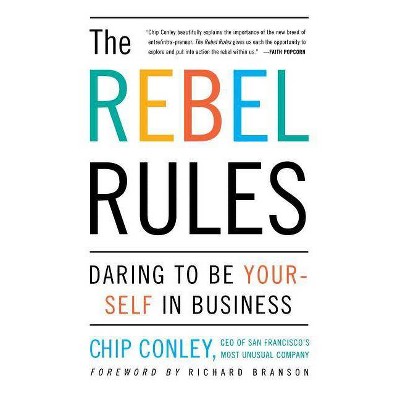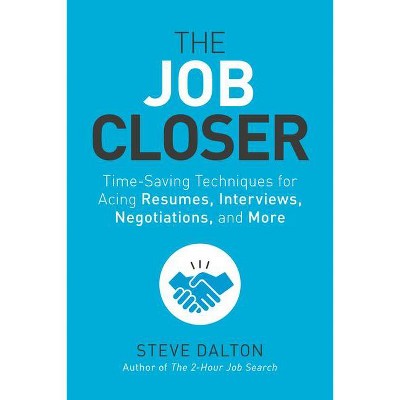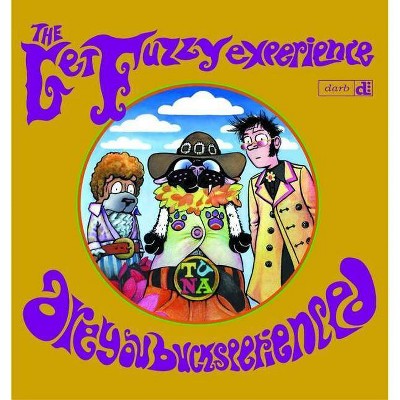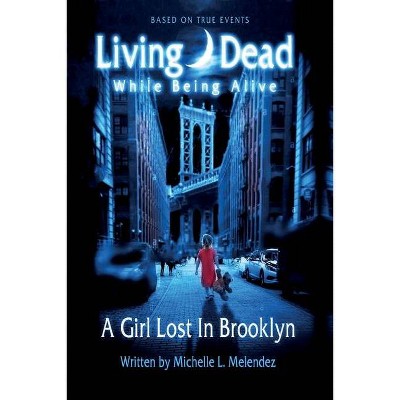Being Black, Living in the Red - by Dalton Conley (Paperback)
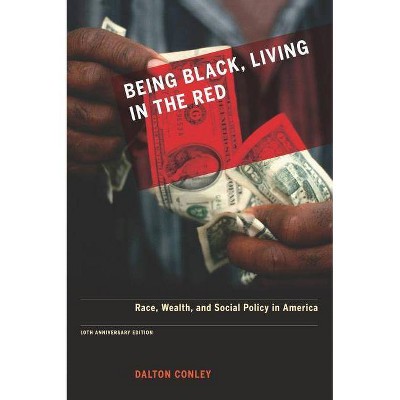
Similar Products
Products of same category from the store
AllProduct info
<p/><br></br><p><b> About the Book </b></p></br></br>""Being Black, Living in the Red" is an important book. In Conley's persuasive analysis the locus of current racial inequality resides in class and property relations, not in the labor market. This carefully written and meticulous book not only provides a compelling explanation of the black-white wealth differential, it also represents the best contribution to the race-class debate in the past two decades."--William Julius Wilson, author of "When Work Disappears: The World of the New Urban Poor" <BR>"In "Being Black, Living in the Red, " Dalton Conley has taken the discussion of race and inequality into important new territory. Even as income inequality is shrinking, Conley shows, the wealth gap endures. That gap, he argues lucidly, explains much of the persisting 'two societies' phenomenon--it contributes significantly to inequalities in education, work, even family structure. Those concerned about equity in America will find this book indispensable reading."--David Kirp, author of "Our Town: Race, Housing, and the Soul of America" <BR>"With methodological sophistication Dalton Conley's well written book makes a significant contribution to our understanding of the precarious social and economic predicament that African Americans continue to experience."--Martin Sanchez-Jankowski, author of "City Bound: Urban Life and Political Attitudes Among Chicano Youth" <BR>"Picking up where Oliver and Shapiro ("Black Wealth, White Wealth") left off, Conley details how and why facets of net worth cascade into long-term inequalities. All sides will be impressed with Conley's thorough scholarship and richly detailed analysis."--Troy Duster, co-editor of "Cultural Perspectives on Biological Knowledge" <BR>""Being Black, Living in the Red" is the most convincing analysis yet of the importance of wealth for the life chances of African Americans. Thanks to Conley's stunning data and adroit theoretical discussions, social scientists and policymakers can no longer ignore wealth as they attempt to deal with the thorny issue of racial inequality. A must read!"--Melvin L. Oliver, author of "Black Wealth, White Wealth: A New Perspective on Racial Inequality"<p/><br></br><p><b> Book Synopsis </b></p></br></br><i>Being Black, Living in the Red</i> demonstrates that many differences between blacks and whites stem not from race but from economic inequalities that have accumulated over the course of American history. Property ownership-as measured by net worth-reflects this legacy of economic oppression. The racial discrepancy in wealth holdings leads to advantages for whites in the form of better schools, more desirable residences, higher wages, and more opportunities to save, invest, and thereby further their economic advantages. A new afterword by the author summarizes Conley's recent research on racial differences in wealth mobility and security and discusses potential policy solutions to the racial asset gap and America's low savings rate more generally.<p/><br></br><p><b> From the Back Cover </b></p></br></br><i>Being Black, Living in the Red</i> is an important book. In Conley's persuasive analysis the locus of current racial inequality resides in class and property relations, not in the labor market. This carefully written and meticulous book not only provides a compelling explanation of the black-white wealth differential, it also represents the best contribution to the race-class debate in the past two decades.--William Julius Wilson, author of <i>When Work Disappears: The World of the New Urban Poor</i><br /><br />In <i>Being Black, Living in the Red, </i> Dalton Conley has taken the discussion of race and inequality into important new territory. Even as income inequality is shrinking, Conley shows, the wealth gap endures. That gap, he argues lucidly, explains much of the persisting 'two societies' phenomenon--it contributes significantly to inequalities in education, work, even family structure. Those concerned about equity in America will find this book indispensable reading.--David Kirp, author of <i>Our Town: Race, Housing, and the Soul of America</i><br /><br />With methodological sophistication Dalton Conley's well written book makes a significant contribution to our understanding of the precarious social and economic predicament that African Americans continue to experience.--Martin Sanchez-Jankowski, author of <i>City Bound: Urban Life and Political Attitudes Among Chicano Youth</i><br /><br />Picking up where Oliver and Shapiro (<i>Black Wealth, White Wealth</i>) left off, Conley details how and why facets of net worth cascade into long-term inequalities. All sides will be impressed with Conley's thorough scholarship and richly detailed analysis.--Troy Duster, co-editor of <i>Cultural Perspectives on Biological Knowledge</i><br /><br /><i>Being Black, Living in the Red</i> is the most convincing analysis yet of the importance of wealth for the life chances of African Americans. Thanks to Conley's stunning data and adroit theoretical discussions, social scientists and policymakers can no longer ignore wealth as they attempt to deal with the thorny issue of racial inequality. A must read!--Melvin L. Oliver, author of <i>Black Wealth, White Wealth: A New Perspective on Racial Inequality</i><p/><br></br><p><b> Review Quotes </b></p></br></br><br>"<i>Being Black, Living in the Red</i> cogently and convincingly argues that much of the literature on racial disparities--in education, employment, and welfare receipt--suffers from a missing variable problem. The missing variable is family wealth." -- "Journal of Economic Literature"<br><br>"<i>Being Black, Living in the Red</i> is an important contribution to our overall understanding of social stratification in modern society. It provides an excellent introduction to the subject for students and is an important piece of scholarship for all social scientists interested in inequality."-- "American Journal of Sociology"<br><br>"<i>Being Black, Living in the Red</i> provides an insightful and thorough analysis of America's racial wealth gap. . . . A major statement that demands the attention of scholars, policy makers, and others interested in race and class dynamics in America. This book cannot be ignored, and it deserves credit for moving the discussion of race and class inequality forward in important new ways. Perhaps most important, it makes it possible to consider several policy options that are not usually part of the debate."-- "Contemporary Sociology"<br><br>"Conley develops a very cogent argument for reorienting the debate of race and poverty. . . . In the context of the larger race-and- wealth discourse, Conley's work is an important contribution that adds a different dimension to the traditional notions of 'class.'"-- "New Labor Forum"<br><br>"Within the race-versus-class framework, this is an outstanding book . . . A must read. The policy implications are weighty. As Conley argues, current policies meant to address racial inequality will not work. Equality of opportunity, given that wealth begets wealth, will never be enough to move toward racial equality. And it is with this realization that our nation must now wrestle."-- "Social Forces"<br><p/><br></br><p><b> About the Author </b></p></br></br><b>Dalton Conley</b> is University Professor, Chair of Sociology, and Acting Dean of Social Sciences at New York University. He is also Research Associate at the National Bureau of Economic Research and Adjunct Professor of Community Medicine at Mt.Sinai School of Medicine.<br />
Price History
Price Archive shows prices from various stores, lets you see history and find the cheapest. There is no actual sale on the website. For all support, inquiry and suggestion messagescommunication@pricearchive.us
